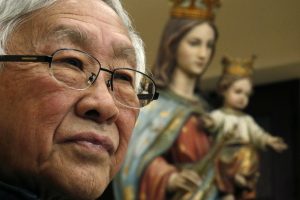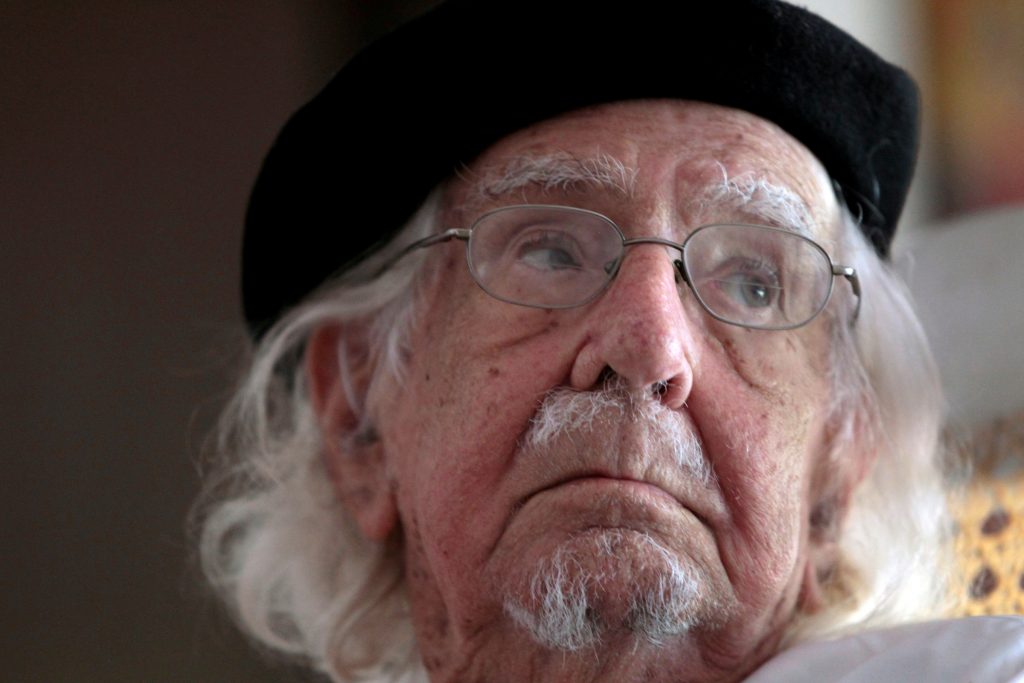ROME — Today, it seems possible young people will look back on the coronavirus (COVID-19) pandemic as a defining historical turning point in their lives, triggering huge transitions not only in the power of governments to restrict free movement and assemblies for the sake of public health, but also in the global economy and many other spheres of life.
For those who were young a half-century ago, however, there’s no need to speculate on what that defining historical force was for them, because we all know: The Cold War.
For more than 70 years, the rivalry between the West and the Soviet sphere defined politics on both sides while the threat of nuclear annihilation hung over three generations. From Joseph McCarthy and the Alger Hiss trial to popular movies such as “WarGames” and “Red Dawn,” the cultural and psychological footprint of the Cold War was inescapable.
Technically, all that may have ended in 1989 with the collapse of the Berlin Wall. Yet history, like college fraternity members and drunken sailors, is sometimes prone to hangovers, and recent weeks have provided a couple of classic Catholic “for instances.”
On March 1, the Nicaraguan poet and Sandinista activist Father Ernesto Cardenal died at the age of 95. A hero of the Latin American liberation theology movement, Father Cardenal ran afoul of St. Pope John Paul II and the Polish pope’s robust anti-Communism. Their infamous 1983 collision at Managua’s international airport quickly became an iconic global image.
While the conflict has abated under Pope Francis, including lifting Father Cardenal’s three-decade suspension from the priesthood, there are still significant divisions in Catholicism over the legacy of liberation theology and what critics saw as its overly friendly approach to socialist thought and analysis.
Also in early March, Chinese Cardinal Joseph Zen, the emeritus bishop of Hong Kong, publicly fired back against Italian Cardinal Giovanni Battista Re, the recently appointed dean of the College of Cardinals, after Cardinal Re had written to Cardinal Zen, basically telling him to stifle criticism of the Vatican’s landmark 2018 deal with China over the appointment of bishops.
Cardinal Zen, a hero to anti-Communist Catholic conservatives, has described that deal on various occasions in classic Cold War language as a form of “appeasement” of the Chinese regime and a “betrayal” of China’s underground Catholic community, which has paid in blood for its resistance to the Communist system and its loyalty to Rome.
In a Feb. 26 letter to Cardinal Zen, Cardinal Re insisted that the 2018 deal was completely in continuity with the approach of Pope John Paul and Pope Benedict XVI, suggesting to Cardinal Zen that he should get behind “the path of reconciliation, of unity, and of mission at the service of the Gospel” which the new provisional agreement represents.
Though the details of the agreement have never been released, in broad strokes it affords Chinese authorities a role in the selection of new Catholic bishops to avoid the Cold War dynamic of bishops appointed by the pope but rejected by the government, or appointed by the government but not recognized in Rome, splitting the Catholic population in two.
Cardinal Zen responded to Cardinal Re on March 1, rejecting the claim that Pope John Paul II or Pope Benedict would approve the deal, and — as he has on several other occasions — accusing Italian Cardinal Pietro Parolin, the Vatican’s secretary of state, of “manipulating” the pope.
Cardinal Parolin, Cardinal Zen wrote to Cardinal Re, “is manipulating the Holy Father, who always shows so much affection to me when we meet, but never answers my questions.”

Both Father Cardenal’s passing and Cardinal Zen’s defiance, in other words, are reminders that the imprint of the Cold War on Catholic life may be receding, but it has hardly disappeared.
There’s also perhaps another moral to the story, which is this: Just like in politics of the geopolitical sort, so, too, in the Church, neither defeat nor victory are necessarily permanent, and striking reversals of fortune are forever possible.
Father Cardenal seemed largely consigned to the ecclesiastical dustbin after that 1983 tête-à-tête with Pope John Paul, and within a decade it also seemed the overtly political form of liberation theology he embodied had been more or less beaten back by opposition from important sectors of the hierarchy, both in Latin America and in the Vatican.
Yet with the election of Pope Francis the tide turned, with several of the heroes associated with liberation theology experiencing a renaissance: Peruvian theologian Father Gustavo Gutiérrez, OP, was feted in the Vatican by the head of the Congregation for the Doctrine of the Faith, Archbishop Oscar Romero of El Salvador was canonized, Father Miguel d’Escoto Brockmann, MM, of Nicaragua saw his suspension from the priesthood lifted, and the same thing happened to Father Cardenal in 2019.
Cardinal Zen, meanwhile, was named bishop of Hong Kong under Pope John Paul and made a cardinal under Pope Benedict, and he seemingly enjoyed those pontiffs’ personal support in his hardline stance against China’s Communist authorities.
Today, however, Cardinal Zen would appear to be on the outs.
It’s certainly not every day the dean of the College of Cardinals publicly crosses swords with a fellow prince of the Church. The only recent precedent might be 2010, when Cardinal Christoph Schönborn of Vienna was called on the carpet in Rome after suggesting Italian Cardinal Angelo Sodano, then the dean of the College of Cardinals and former secretary of state under Pope John Paul, had blocked action against Cardinal Hans Hermann Groër, Cardinal Schönborn’s predecessor, who had been accused of sexual abuse.
Right now, Father Cardenal’s legacy seems to have greater traction in the Vatican than Cardinal Zen’s. However, just 10 years ago the opposite arguably would have been true, suggesting that perhaps the last word on these two Cold War giants hasn’t yet been written.
After all, even if the coronavirus is eventually contained, there’s no such strategy for containing change, either in the Church or anywhere else.

